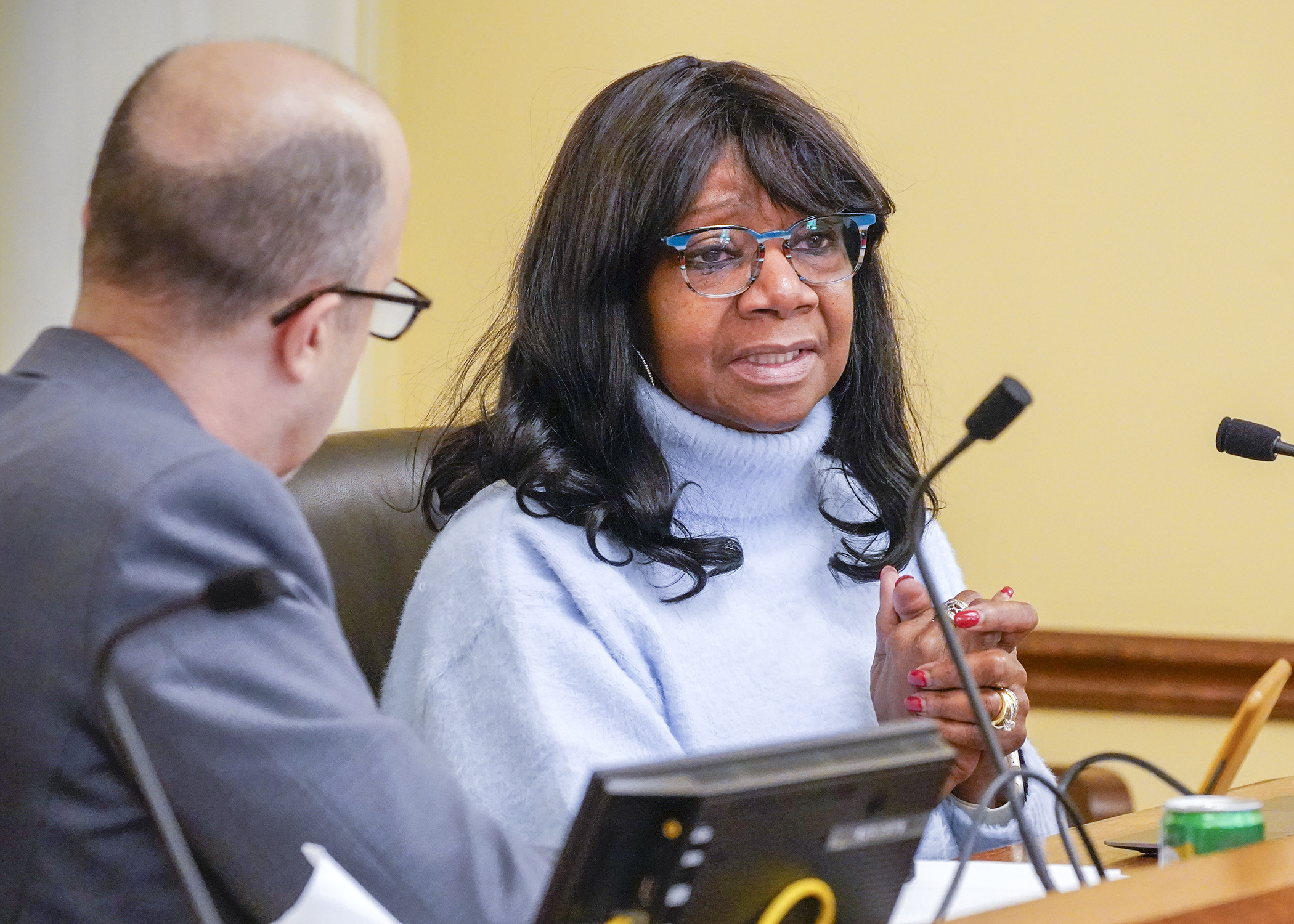Public safety panels House OKs contentious gun background check bill

Criminal background checks can be effective in keeping guns out of the hands of people who should not be trusted with them. But those checks are done through licensed firearm sellers, as required by law, and not done when two private parties arrange a sale.
That leaves a loophole allowing dangerous felons and other prohibited individuals to purchase guns from unlicensed sellers, says Rep. Dave Pinto (DFL-St. Paul). He sponsors HF14 to change that.
“We can and must do more to help keep guns out of the hands of people who have shown themselves to be dangerous and to make our communities safer across the state,” he said.
The bill would require private transfers of pistols and semiautomatic military-style assault weapons be preceded by a firearms eligibility background check of the person receiving the firearm.
The House Public Safety Finance and Policy Committee approved the bill, as amended, on a party-line 9-6 vote Friday and sent it to the House Judiciary Finance and Civil Law Committee.
Chiefs of police or county sheriffs would be responsible for performing background checks, and must deny a transfer if the proposed buyer is prohibited from owning a gun by Minnesota law.
Private parties who transfer a pistol or semiautomatic military-style assault weapon would be required to complete a transferee permit application form, and that record of transfer must be retained, either on paper or in digital format, by both parties for 20 years. Failing to do so would be a gross misdemeanor.
Testimony for and against
Proponents say the bill is a common-sense measure similar to legislation passed in 21 other states that has successfully reduced gun violence.
“It should not matter whether you purchase a firearm at a local retailer or a private seller — you should be required to pass a background check,” said Public Safety Commissioner Bob Jacobson.
The federal criminal background check system has prevented 1.5 million illegal firearm sales since 1998, he said. Disqualified buyers were convicted of serious crimes such violent domestic assault and domestic restraining order violations.
Two law enforcement associations support the bill, the Minnesota Police and Peace Officers Association and the Minnesota Sherriff’s’ Association, as does the Minnesota County Attorneys Association.
Opponents say it will do nothing to reduce illegal gun sales while unduly burdening law-abiding gun owners and violating the Second Amendment.
Rep. Matt Grossell (R-Clearbrook) said he believes bill proponents have good intentions, but the proposal is fatally flawed.
The private background checks required by the bill would not slow down those criminals intent on committing crimes with illegally obtained guns, he said.
Republicans also object to a the 20-year transaction copy provision.
That’s too onerous, said Rep. Paul Novotny (R-Elk River). He unsuccessfully offered an amendment that would have reduced the record retention period to seven years.
Pinto said the bill provides sellers and buyers the option to avoid that records retention provision by completing the sale at a federally licensed firearms dealer.
Related Articles
Search Session Daily
Advanced Search OptionsPriority Dailies
Speaker Emerita Melissa Hortman, husband killed in attack
By HPIS Staff House Speaker Emerita Melissa Hortman (DFL-Brooklyn Park) and her husband, Mark, were fatally shot in their home early Saturday morning.
Gov. Tim Walz announced the news dur...
House Speaker Emerita Melissa Hortman (DFL-Brooklyn Park) and her husband, Mark, were fatally shot in their home early Saturday morning.
Gov. Tim Walz announced the news dur...
Lawmakers deliver budget bills to governor's desk in one-day special session
By Mike Cook About that talk of needing all 21 hours left in a legislative day to complete a special session?
House members were more than up to the challenge Monday. Beginning at 10 a.m...
About that talk of needing all 21 hours left in a legislative day to complete a special session?
House members were more than up to the challenge Monday. Beginning at 10 a.m...